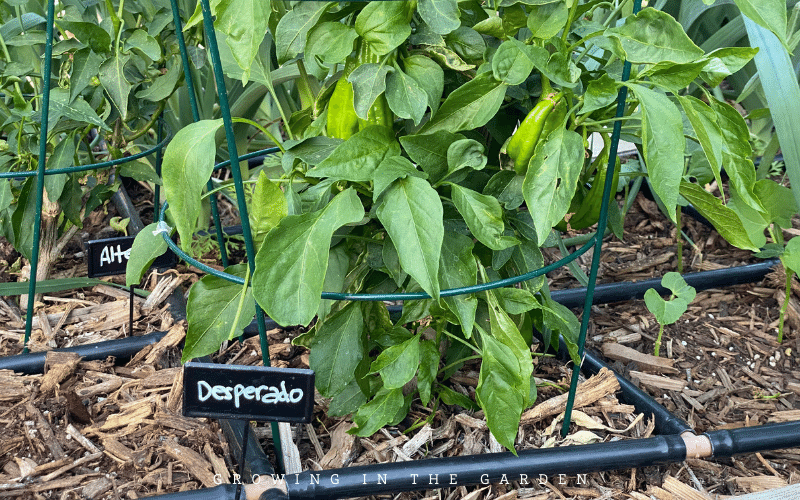
Urban Gardening Tips For Your Backyard Vegetable Garden
An urban garden doesn't need to be a large plot of land. You can grow vegetables in pots and take advantage of your leftover food scraps. Simply place the plants in a container with enough water to allow them to sprout. Plants that can grow up are ideal for small spaces. To grow, they will need support structures. A single pot can be used to grow a variety different crops.

Container gardens are an efficient and simple way to grow plants. A window box planter works well in sunny windows, while a larger container is needed for larger plants. Fabric planters can be lightweight, but they won't fall apart under the weight of your plants. You can also collapse them for storage when not in use. However, when using containers, choose a container that is sized appropriately for the amount of space you have. This will make it possible to move your garden around during bad weather.
When starting a garden, always consider the space available. The space you have available will affect how much you can grow. You might need to consider planting in containers if you don't have enough space on your balcony. Container gardening allows for plants to be grown without soil. It can also be used vertically. Urban gardening is not regulated, except for fence height ordinances or homeowners associations.
Container gardens make a great alternative to a traditional garden. Because urban gardens are often small, there isn't enough room to allow water drainage. But, it is possible to grow vegetables in containers. Urban gardening projects often focus on medicinal plants that can be used to treat HIV/AIDS. You can read literature online and at libraries to find out more about your chosen project. Elevated platforms are a great option if you need a place for your pots to be planted.

There are many benefits to urban gardening, including a healthier community, improved air quality, and a more sustainable environment. Urban gardening provides nutrients for your plants and encourages social interaction. You can even host community events and network with your neighbors. Urban gardening improves your senses of community participation as well as your awareness of environmental and social issues. It helps to preserve soil fertility, water quality, urban ecological diversity, and urban ecology.
Evergreens are a popular choice for urban gardens, including a boxwood hedge. For creating perfect urban gardens, boxeswood, holly, as well as laurel, are ideal. You can even train fruit tree to grow on walls and fences. These are excellent plants for small spaces where frost is less likely. And if space is a problem, you can even make a trellis to support the trees.
FAQ
Can I grow fruit trees in pots?
Yes! If you have limited space, fruit trees can be grown indoors. Make sure your pot is drained to prevent the tree from getting rotted by excess moisture. Make sure the pot is deep enough for the root ball to be held. This will protect the tree from being stressed.
How often should my indoor plants be watered?
Indoor plants need watering once every two days. Watering helps maintain humidity levels inside the house. For healthy plants, humidity is vital.
Which kind of lighting is most effective for growing indoor plants?
Florescent lights work well for growing plants indoors because they emit less heat than incandescent bulbs. They also provide consistent lighting without flickering or dimming. Fluorescent bulbs come in both compact fluorescent (CFL) and regular varieties. CFLs require 75% less energy than traditional bulbs.
Which is the best layout for a vegetable garden?
It all depends on where you live. You should plant vegetables together if you live in a city. For maximum yield, however, it is best to space your plants if you are in a rural area.
Statistics
- 80% of residents spent a lifetime as large-scale farmers (or working on farms) using many chemicals believed to be cancerous today. (acountrygirlslife.com)
- Today, 80 percent of all corn grown in North America is from GMO seed that is planted and sprayed with Roundup. - parkseed.com
- According to a survey from the National Gardening Association, upward of 18 million novice gardeners have picked up a shovel since 2020. (wsj.com)
- Most tomatoes and peppers will take 6-8 weeks to reach transplant size so plan according to your climate! - ufseeds.com
External Links
How To
How can I keep weeds away from my vegetable gardens?
The biggest threat to the growth of healthy vegetables is weeds. They can compete for water and nutrients, sunlight, space, and other resources. These tips can help prevent them taking over your garden.
-
Dig up all plants when they flower
-
Take out any plant debris from the base of your plant
-
Mulch can be used
-
Regular water intake
-
Rotate crops
-
Don't allow the grass to grow too long
-
Keep soil moist
-
Plant early
-
Harvest often
-
Mix compost
-
Avoid using chemical pesticides
-
Organic vegetables are best
-
Buy heirloom seeds
-
Start small
-
Learn more about companion planting
-
Be patient
-
Enjoy gardening!